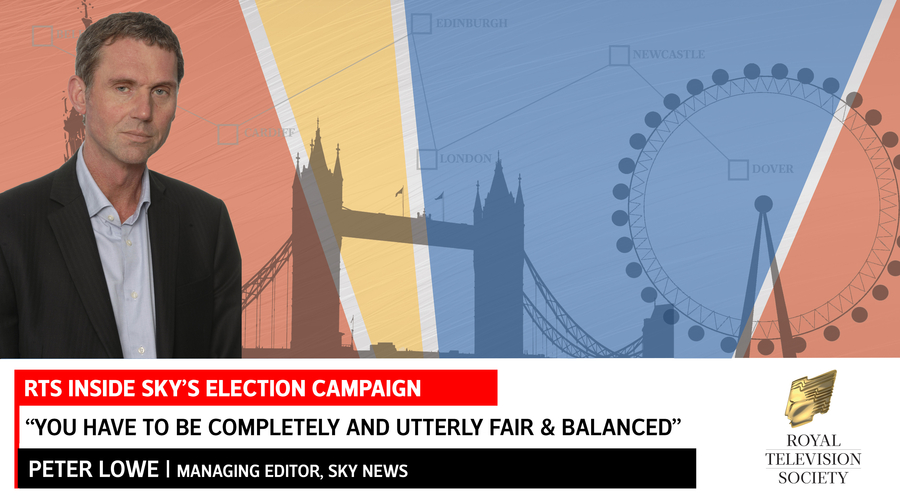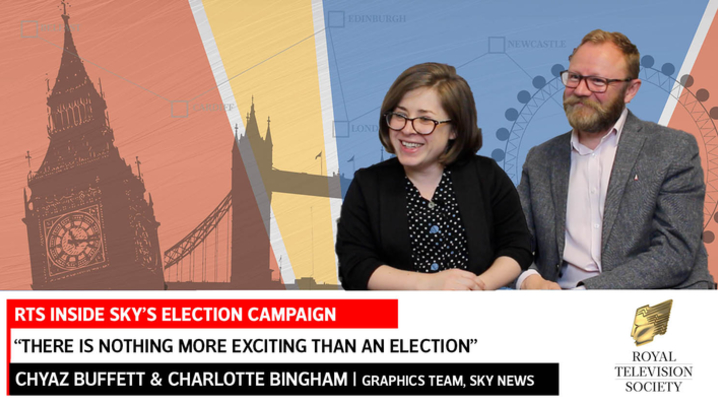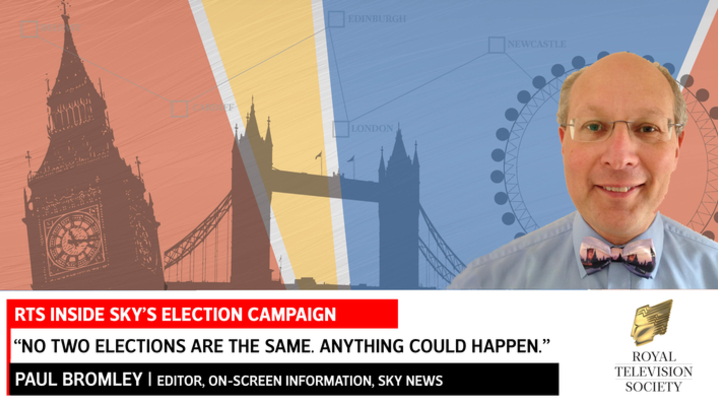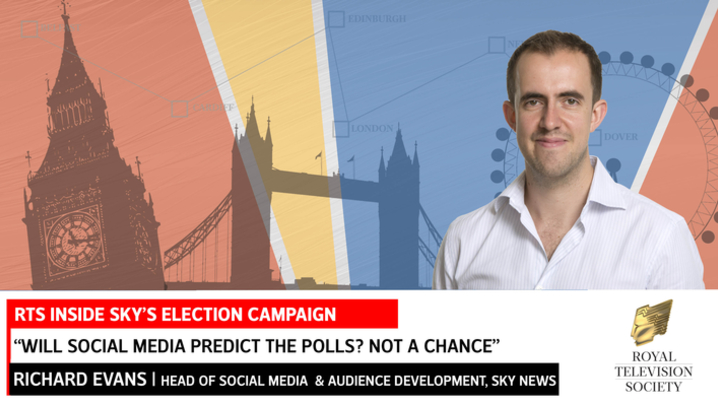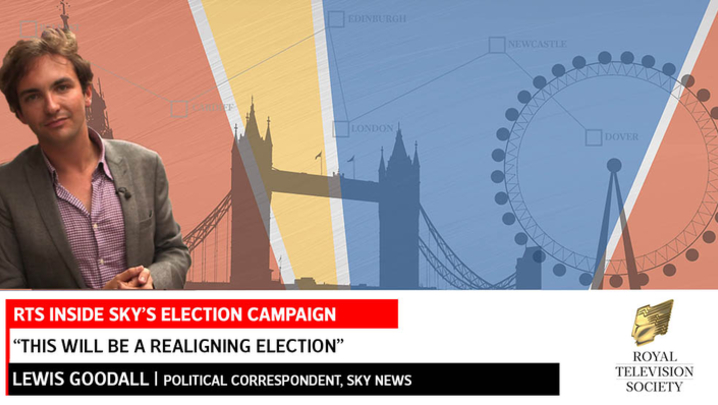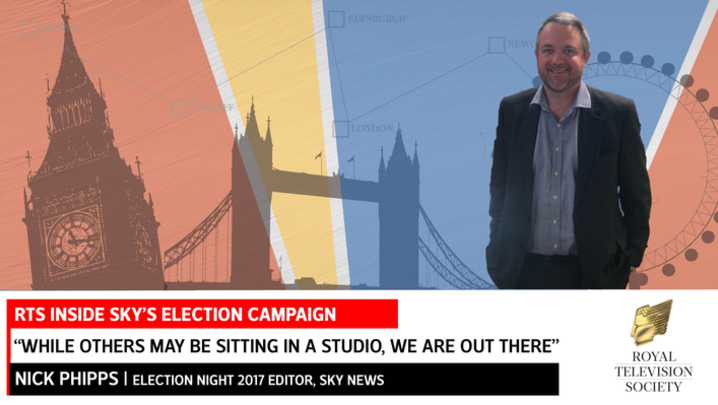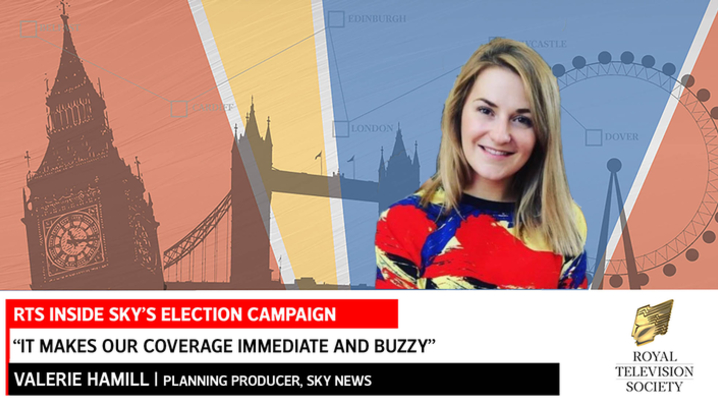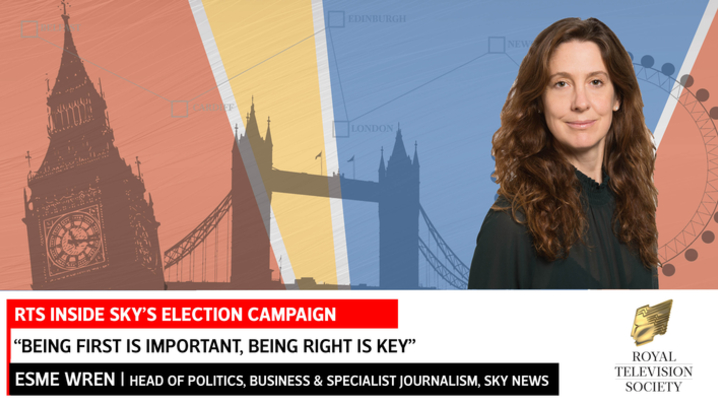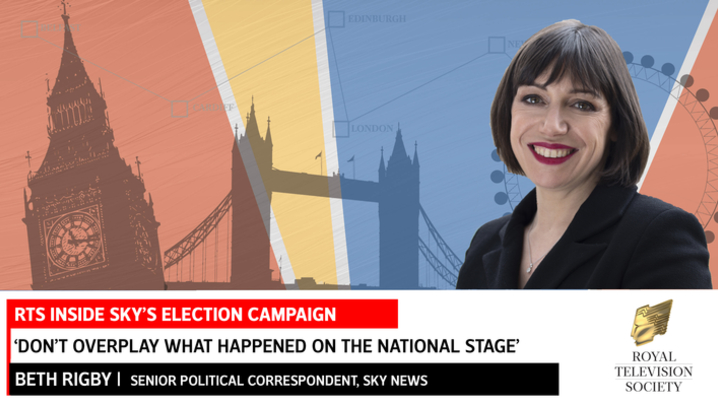Meet the man who keeps Sky News on the straight and narrow.
Peter Lowe is the Managing Editor of Sky News, and the man responsible for ensuring that the broadcaster meets its commitments to impartiality and unbiased reporting - something broadcasters are legally required to do under the Communications Act 2003.
News reporting, both in and outside of election season, must be fair and unbiased, it must show 'due impartiality', which Peter explains below, and 'due accuracy', meaning that the accuracy needed must be satisfactory and appropriate to the content.
With a background in print journalism - which is not bound by the same requirements of impartiality - Lowe moved to Sky News partly because, he says, "I was much more interested in both side of the argument."
What is the Ofcom Code?
The Ofcom code is guidance for broadcasters generally, and there are sections of it that apply to news broadcasters. [It] is guidance to us to help us make sure that we are being fair and balanced in our coverage. Newspapers have the ability, not to say what they like, but to be partial. In broadcasting that doesn't happen. The code doesn’t tell you what you have to do and what you can and can’t do. It's really a set of guidelines or guidance which helps you to frame your conduct. What is really important is that we are scrupulously fair, balanced and impartial in our coverage of really most news stories, and that applies particularly to coverage of issues of public policy and politics, and it applies even more at the time of a general election.
What is 'Due impartiality'?
In broadcast news, we strive all the time to be balanced and impartial in all that we do. The point about of the word 'due', is that you need to apply the right amount of impartiality to the situation. So, in the case of an election campaign or any matter of political or public controversy obviously, the amount of impartiality due is absolute: you have to be completely and utterly fair and balanced. There are occasions that a journalist [is] on air [and] you might know what football team they support, [but] actually no one really cares. Where they do care is that you are absolutely fair in your coverage on anything that is in any way controversial.
Does Sky News get accused of being biased?
We do get people writing in and criticising us because they see a certain section of the output and they don’t like what they hear. I can assure all of these people, we aren’t biased, and we don’t set out to give more coverage to one side or another. We are a non-stop news organisation, and therefore you might watch for 20 minutes in the middle of the afternoon, and there is a discussion involving Conservative politicians, and people might write in and say 'well we didn’t hear from Labour', well actually you did in the next hour.
[People] are passionate about politics … [and] will complain about a point of view that they didn’t like to hear. It doesn’t mean it wasn’t fair of us to broadcast it.
What is the deal with 'Due Weight'?
For the 2015 General Election, Ofcom decided that the designated major parties for the election campaign would be Labour, Conservative, Liberal Democrat and UKIP in England. The aim of that was to say: these are the parties that must be represented in a fair and balanced way. The major parties concept has [since] disappeared, [so] what you are [now] doing is judging things on the amount of electoral support that there has been historically for a political party. Historically [there is] a massive amount of electoral support for the Conservatives and the Labour party, and they overwhelmingly have the biggest number of MPs in the House of Commons. Anybody who thinks that actually, getting rid of the Major Parties rule means that you can ignore UKIP, that is absolutely not the case. UKIP for 3.8m votes at the last general election which was more individual votes than the Liberal Democrats got.
What happens if you are found to not be impartial?
There are consequences. You can get censured… and be found to be non-compliant, and no broadcaster wants to do that because it potentially means reputational damage. There was a case in the past where a broadcaster [broke the rules] and they were fined £20,000, so there certainly are consequences. I am glad to say that there have been a tiny number of occasions that we have got in any kind of trouble with Ofcom.
What are the dos and don'ts of the election period?
The official election campaign period begins when parliament dissolves… so some more special rules apply then - particularly in the way which you report about constituencies – [you must represent of all of the options].
From the moment that the polls open you have to stop doing any discussion of election issues. You can’t publish any opinion polls. You basically can’t do anything that could influence the way that people might vote that day. You leave them to their own thoughts and they can go out and vote.
At 10pm [on polling day], bang, the exit poll comes out, and from that moment on anybody can say more or less anything that they like.
What is the key thing for viewers to know about election coverage?
The thing that viewers should really know above all is that Sky News, and indeed all news broadcasters in this country, take a massive amount of care and attention to detail to ensure that everything we do in coverage of an election campaign is fair to the political parties and is demonstrably impartial in the way we cover it. It doesn’t mean that we won’t hold politicians to account. You have to have a devil’s advocate attitude to all of the policies that all of the parties are putting out. You are not their mouthpiece, you are there to help the public through the issues, but we are absolutely determined every day to do it in a fair way.
This interview is part of the RTS series Inside Sky's Election Campaign. For more interviews from key Sky News figures, visit the series homepage.

